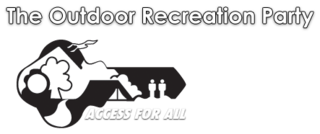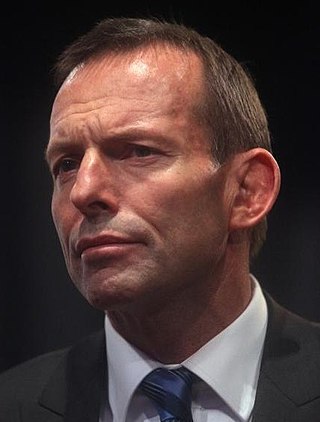Related Research Articles

The Australian Democrats is a centrist political party in Australia. Founded in 1977 from a merger of the Australia Party and the New Liberal Movement, both of which were descended from Liberal Party dissenting splinter groups, it was Australia's largest minor party from its formation in 1977 through to 2004 and frequently held the balance of power in the Senate during that time.
The Australian electoral system comprises the laws and processes used for the election of members of the Australian Parliament and is governed primarily by the Commonwealth Electoral Act 1918. The system presently has a number of distinctive features including compulsory enrolment; compulsory voting; majority-preferential instant-runoff voting in single-member seats to elect the lower house, the House of Representatives; and the use of the single transferable vote proportional representation system to elect the upper house, the Senate.

The Australia First Party (NSW) Incorporated, often shortened to the Australia First Party (AFP), is an Australian nationalist political party founded in 1996 by Graeme Campbell. The policies of Australia First have been described as ultranationalist, anti-multicultural and economically protectionist. The party's logo includes the Southern Cross of the Eureka Flag.

The Nuclear Disarmament Party (NDP) was an Australian political party formed in June 1984. It was founded by medical researcher Michael Denborough as the political arm of the Australian anti-nuclear movement, which had been active since the early 1970s.

The Shooters, Fishers and Farmers Party (SFF) is an Australian political party. It primarily advocates for increased funding and services for rural and regional Australia, protecting the right to farm, enhancing commercial and recreational fishing, tougher sentencing for illegal firearm trade and usage, and relaxing gun control for law abiding citizens.

The Outdoor Recreation Party (ORP) was a minor political party originating in New South Wales (NSW), Australia. It professed to represent the outdoor community and interests such as cycling, bushwalking, camping, kayaking, 4WD motoring, skiing, fishing and shooting. It was formally allied with the Liberal Democratic Party.

The Libertarian Party, formerly known as the Liberal Democratic Party, is an Australian political party founded in Canberra in 2001. The party espouses smaller government and supports policies that are based on classical liberal, libertarian principles, such as lower taxes, opposing restrictions on civil liberties, decentralisation, utilising nuclear energy, and the relaxation of smoking laws.
The No Goods and Services Tax Party, previously the Abolish Child Support and Family Court Party, was a minor Australian political party registered between 1997 and 2006 which fielded candidates between the 1998 and 2004 federal elections. The change of name in 2001 was largely a response to the Howard Government's implementation of the Goods and Services Tax. It polled low totals. One Nation founder David Ettridge contested the Senate in Queensland in 2001 for the party.
Environmentalists for Nuclear Energy Australia, formerly called Conservatives for Climate and Environment, was a political party registered in Australia from 2007 to 2010. EFN-Australia referred to itself as a not-for-profit environmental association, registered as a political party. It was the Australian affiliate of Environmentalists for Nuclear, and the party campaigned unsuccessfully to gain nuclear power in Australia.
Patricia May Petersen is an Australian academic from Ipswich, Queensland.
The Communist Alliance was registered on 16 March 2009 with the Australian Electoral Commission (AEC) as an Australian political party. It was an alliance of a number of Communist groups, individuals and ethnic-based communist parties. The Alliance was formed to allow communists to run in elections under the Communist banner, while allowing the Communist Party of Australia, a member of the Alliance, to retain a separate, independent membership.

The 2013 Australian federal election to elect the members of the 44th Parliament of Australia took place on 7 September 2013. The centre-right Liberal/National Coalition opposition led by Opposition leader Tony Abbott of the Liberal Party of Australia and Coalition partner the National Party of Australia, led by Warren Truss, defeated the incumbent centre-left Labor Party government of Prime Minister Kevin Rudd in a landslide. It was also the third time in history that a party won 90 or more seats at an Australian election. Labor had been in government for six years since being elected in the 2007 election. This election marked the end of the Rudd-Gillard-Rudd Labor government and the start of the 9 year long Abbott-Turnbull-Morrison Liberal-National Coalition government. Abbott was sworn in by the Governor-General, Quentin Bryce, as Australia's new Prime Minister on 18 September 2013, along with the Abbott Ministry. The 44th Parliament of Australia opened on 12 November 2013, with the members of the House of Representatives and territory senators sworn in. The state senators were sworn in by the next Governor-General Peter Cosgrove on 7 July 2014, with their six-year terms commencing on 1 July.

The WikiLeaks Party was a minor political party in Australia. The party was created in part to support Julian Assange's failed bid for a Senate seat in Australia in the 2013 election, where they won 0.66% of the national vote. At the time Assange was seeking refuge in the Ecuadorian embassy in London. The WikiLeaks Party national council consisted of Assange, Matt Watt, Gail Malone, Assange’s biological father John Shipton, Omar Todd and Gerry Georgatos. The party experienced internal dissent over its governance and electoral tactics and was deregistered due to low membership numbers in 2015.

The following tables show state-by-state results in the Australian Senate at the 2013 Australian federal election.

The Arts Party is an Australian political party inspired by the importance of the arts and creative action. The party was voluntarily deregistered with the Australian Electoral Commission on 25 June 2019, but remains registered for local elections with the New South Wales Electoral Commission.

CountryMinded was an Australian political party formed in 2014 that claimed to represent the interests of regional Australians whose livelihoods depend either directly or indirectly on agricultural production. The party was founded by a group of people looking for accountable regional representation, including two brothers from New South Wales, David and Peter Mailler as the Country Party of Australia, and changed its name to CountryMinded in September 2015. In 2018, the party merged with the Australian Democrats.

The Seniors United Party of Australia (SUPA) was an Australian political party. It was known as Seniors United NSW until 3 March 2016. The party was founded by Ray Morritt, Nick Agnew, Frank Fitzpatrick and Neil Smith who were dissatisfied with the NSW Government's legislation on retirement villages and other seniors issues. The party was deregistered by the AEC on 29 June 2022.

The 2022 Australian federal election was held on Saturday 21 May 2022 to elect members of the 47th Parliament of Australia. The incumbent Liberal/National Coalition government, led by Prime Minister Scott Morrison, sought to win a fourth consecutive term in office but was defeated by the opposition Labor Party, led by Anthony Albanese. Up for election were all 151 seats in the lower house, the House of Representatives, as well as 40 of the 76 seats in the upper house, the Senate.

The Australian Federation Party (AFP), also known as AusFeds and formerly known as the Country Alliance and the Australian Country Party, is an Australian political party. Founded in 2004 by four rural Victorians, the party lodged its initial registration with the Victorian Electoral Commission on 15 August 2005.
References
- ↑ NSW Electoral Commission: Legislative Council First Preference Summary Archived 31 August 2007 at the Wayback Machine
- ↑ Climate Change Coalition, Australian Electoral Commission.
- ↑ Party Registration Decision: Climate Change Coalition, Australian Electoral Commission.
- ↑ Doherty, Ben: Dr Karl's Senate experiment, The Age , 28 September 2007.
- ↑ Australian Electoral Commission: Senate first preferences by Group, 2007
- ↑ Australian Electoral Commission: 2007 Federal Election - group voting tickets
- ↑ Farr, Malcolm (12 November 2007). "Green ... with envy". The Daily Telegraph . Retrieved 13 November 2007.
- ↑ Australian Broadcasting Corporation: Antony Green's 2007 WA Senate preference flow analysis
- ↑ Australian Electoral Commission: Application to change name